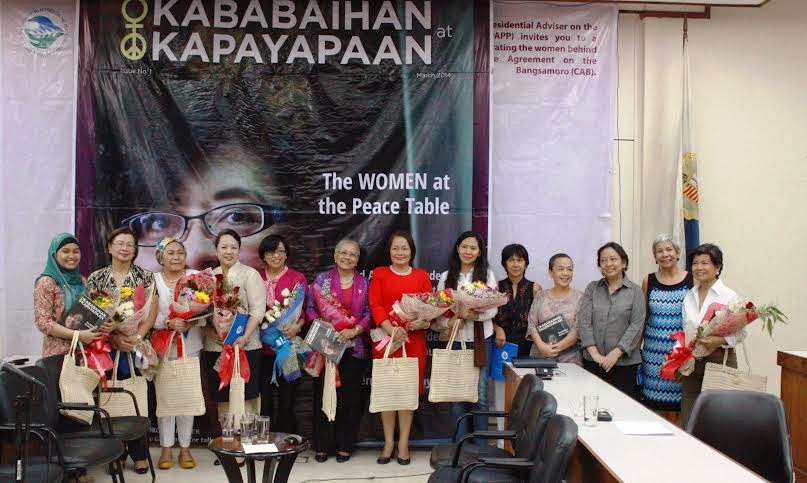
MANILA – The historic signing of the Comprehensive Agreement on the Bangsamoro (CAB) between the Government of the Philippines (GPH) and the Moro Islamic Liberation Front (MILF) last March 27 would speak how far the Filipino women have gone from working behind the scenes to driving the negotiation process.
Despite the challenges of discrimination and stereotyping most of them have faced sometime in their lives, the women in the peace table have much to draw their strength and inspiration from: family, companionship, prayers, ice breakers, and loads of faith, among others.
In a forum dubbed “Women at the Peace Table: They made a difference” held on Tuesday at the Ateneo De Manila University in Quezon City, Secretary Teresita Quintos Deles shared that prayers have kept her going in times when she couldn’t see how the peace talks with the MILF would move forward.
“I have many prayer warriors,” said the country’s first woman peace adviser, adding that among her “prayer warriors” are Cardinal Orlando Quevedo, Rev. Msgr. Celemente Ignacio, and Fr. Manoling Francisco. “The gift of faith is very important. You might not see it, but certainly you can hold on to the faith that we will find a way.”
“When you have a problem, don’t swim back,” added Deles. “It could get difficult but don’t go back; you just have to move forward.”
For GPH chief negotiator Miriam Coronel-Ferrer, being the first woman peace panel chair to have negotiated with the MILF was not easy at first. “In the beginning we knew we’re being tested…we had to prove that the transition from one chair to another and a woman at that would not be an impediment to the process.”
She related how she and her women colleagues grappled with the masculine environment in the peace table by first shaking off the formality between them and their male MILF counterparts who eventually became their friends.
“Adjustments were mostly on their (MILF) end,” said Coronel-Ferrer. “We have to credit them as well for taking on this challenge.”
Defense Undersecretary and Technical Working Group on Normalization chair Zenonida Brosas also talked about “opening a lot of informal sessions” when discussions get rough with the men on the other side of the table.
“To remove that kind of irritant, we’ll say, ‘Okay let’s take a tea break.’ We’ll talk about our children. They will talk about how many wives they have, what kind of pasalubong they want to bring to their first wife and second wife.”
GPH panel secretariat head Iona Jalijali, on the other hand, agreed that women help in humanizing the peace talks. “If it’s an informal process, it becomes very personal. We develop friendships and learn about each other’s personal lives.”
During stressful rounds of negotiations in Kuala Lumpur, Jalijali related that they would cope up through “sleep, food, collective ranting, and guerilla shopping to some extent.”
In the case of GPH peace panel member Yasmin Busran-Lao, who grew up in a heavily patriarchal Maranao and Muslim culture, her passion for peace and love for her fellow Bangsamoro people has helped her deal with gender and cultural challenges.
However, she needed to confront not only these challenges but criticisms against her for joining the government panel. “I am here for peace and the Bangsamoro, for this country. Whether I am part of government or not, this is my position. Everyone should not be judged whether they sit in the government side or the Bangsamoro side.”
For GPH legal panel head Atty. Anna Tarhata Basman, it has always been the lessons of the past that have pushed her to do her best. Her father was involved in the crafting of the first Organic Act that created the current Autonomous Region in Muslim Mindanao which is perceived by the government as a “failed experiment.”
“There was a lot of pressure on my part,” she said. “It would be an insult and it would be tragic for this process to fail. The failure of the past generations is what kept me hopeful in achieving peace this time.”
Organized by the Office of the Presidential Adviser on the Peace Process, the forum was highlighted by the formal launch of the Kababaihan at Kapayapaan (Women and Peace) magazine which featured stories of women peace builders in the government. It was hosted by award-winning broadcast journalist Cheche Lazaro.

